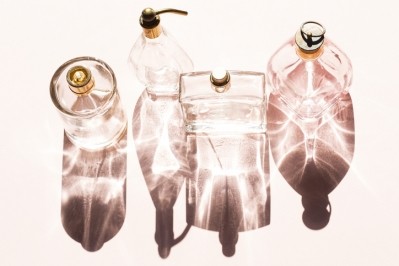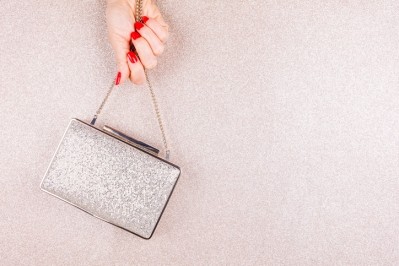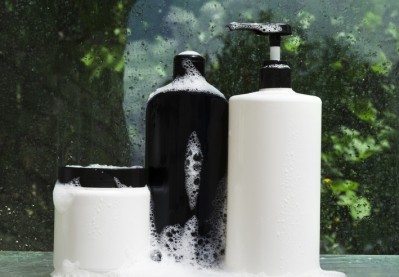ADF&PCD PARIS 2020
Chanel: Luxury can be sustainable – ‘we need to lead the charge’

Developing sustainable, luxurious beauty products that combine aesthetics and ethics is definitely possible and must be collectively led by prestige brands, says the packaging director of Chanel.
In December, last year, the European Commission (EC) published its European Green Deal – outlining the Commission’s goal to drive Europe towards becoming the first climate-neutral continent by 2050 and enshrining climate-neutrality into law. And EC president Ursula von der Leyen said €1 trillion would be mobilised to create a ‘green investment wave’ to do so.
With the climate crisis front-of-mind and an absolute priority for the EU, John Chave, director-general of trade association Cosmetics Europe, said the beauty industry had to be proactive in addressing change. Chave previously told CosmeticsDesign-Europe: “It’s not really possible anymore to disregard the green agenda.”
Can luxury beauty and sustainability go hand in hand?
Addressing attendees in Paris at the ADF&PCD at the end of last month, Pascale Marciniak, packaging innovation director at Chanel, said the conversation around luxury and sustainability was a complex one.
“I believe there is a community of value between luxury and sustainable development, but also for excellency,” Marciniak said.
“We could say beautiful is well-made and good for the planet and aesthetics is ethical. It’s true for certain aspects, but not so obvious for others. Why? Because in the few last decades, luxury has become more complex: it has massified, globalised, widened and spread. And what was infinitely good when it was made locally, unfortunately is no longer the case.”
The challenge for luxury and prestige brands, she said, was to maintain the look and feel sought after by consumers across the globe, and much of this came down to packaging. “Packaging carries values of the brand; its DNA, its story, its heritage.”
Luxury beauty ‘still the most powerful’ – it must act on sustainability
Marciniak said that, typically, luxury beauty brands were perceived as “less committed” to sustainability, but this view ought to fuel a desire to change.
“The luxury industry is perceived as less committed but it’s still the most powerful. Why? Because it’s very visible; it’s a leader in opinion and people look at actions carried out by these brands,” she said.
“…Sustainable development was just at the beginning a few years ago. Now, it’s the right time and consumers are ready. It’s the right time to act.”
Marciniak said innovation, new knowledge and collaboration would ultimately help drive sustainable change throughout luxury beauty, particularly in packaging. “It’s about doing less; less is more. It’s about making the good choices with materials, recycling them, working with new bio-sourced materials, being disruptive with things like refills and reusable packaging, and diminishing single-use products. We’re going to learn by walking.”
Sustainable efforts, she said, also stretched beyond packaging – into ingredients, sourcing, social commitments and partnerships.
Luxury and excellency yet exemplary in responsibility
“Luxury and responsibility are two complicated notions that we want to merge. With no compromise in terms of ethics or eco-design, we need to find a new value proposal – having at heart the desirability, dream, pleasure, emotion and always transparency.
“…And when we mention transparency, which is key to the future, we need to lead the charge,” Marciniak said.
Isabelle Lallemant, international marketing, innovation and CSR director at Groupe Pochet, agreed prestige beauty had to lead change.
“For us, luxury is linked to excellency. Can we talk about excellency without exemplary? Luxury is also linked to value and notoriety. Can we have notoriety without responsibility? For us, it makes sense. It’s very clear that with the change we’re going through nowadays, the luxury segment has to embrace it and change its mindset.”
Collaborating throughout the creation process would be important, revising certain parts of know-how and expertise but preserving others, Lallemant said, as would working to stay as local as possible.

![The lid is made of a blend of plant-based materials, including byproduct wood chippings, and maintains a luxury edge thanks to a ceramic feel [Image: Chanel/Sulapac]](https://www.cosmeticsdesign-europe.com/var/wrbm_gb_food_pharma/storage/images/_aliases/wrbm_medium/publications/cosmetics/cosmeticsdesign-europe.com/article/2021/10/14/chanel-rolls-out-biobased-lids-across-les-eaux-de-chanel-perfume-collection-co-developed-with-sulapac/12926213-1-eng-GB/Chanel-rolls-out-biobased-lids-across-Les-Eaux-de-Chanel-perfume-collection-co-developed-with-Sulapac.jpg)









![Chinese study highlights mental health challenges in atopic dermatitis, emphasising holistic patient care. [Getty Images]](https://www.cosmeticsdesign-europe.com/var/wrbm_gb_food_pharma/storage/images/_aliases/wrbm_tiny/publications/cosmetics/cosmeticsdesign-asia.com/headlines/formulation-science/chinese-research-linking-atopic-dermatitis-to-mental-health-underscores-need-for-holistic-care/17040623-1-eng-GB/Chinese-research-linking-atopic-dermatitis-to-mental-health-underscores-need-for-holistic-care.jpg)








